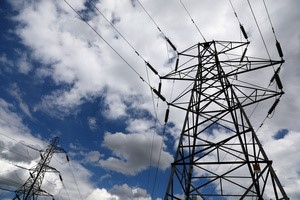
Despite Political Risks, Trudeau May Continue as Canada’s Prime Minister Until 2025
By David Ljunggren
OTTAWA (Reuters) – Political analysts suggest that Justin Trudeau may continue as Canada’s prime minister into the next year, despite his minority Liberal government facing increased vulnerability following the New Democratic Party’s withdrawal of support for key votes.
After nearly nine years in power, Trudeau has encountered voter fatigue, and the recent decision by the New Democratic Party (NDP) to end a support agreement from 2022 has further weakened his position. Under this agreement, the NDP had pledged to back Trudeau in exchange for increased social spending.
This shift means the prime minister can no longer guarantee survival during confidence votes in the House of Commons, where the Liberals hold only 154 of the 338 seats. A combined opposition of 170 legislators voting against the Liberals could lead to the government’s fall and force an early general election before the current term concludes at the end of October 2025.
Polls indicate that if a general election were to occur, the Conservative Party, led by Pierre Poilievre, would likely secure a majority. Nevertheless, Trudeau may remain secure for the time being, as the next critical confidence vote related to the government’s budget update is expected in late November or December.
During this upcoming vote, the NDP will have the choice to align with the Liberals. NDP leader Jagmeet Singh stated last week that his party would evaluate such votes individually. There’s also a significant question regarding whether the NDP is genuinely interested in bringing down Trudeau’s government. The Conservatives have placed blame on the current administration for rising costs and a housing crisis, which could limit the NDP’s seats in an early election.
Philippe Lagasse, a constitutional expert at Carleton University, noted, “There’s a lot of expectation that the NDP actually plans to make the government fall, yet I haven’t seen evidence to support that.”
Singh’s withdrawal of support came after months of concerns from party members that voters were not recognizing the NDP’s contributions to social spending. However, Nik Nanos, head of Nanos Research, suggested that the NDP is unlikely to seek a quick collapse of the Liberal government, as Singh needs to establish a distinct identity apart from Trudeau’s after prolonged support.
The parliamentary rules provide the opposition parties with seven opportunities between September 16 and December 10 to propose motions. The Conservatives, as the largest opposition party, are expected to make several attempts to challenge Trudeau. However, the timing of these motions will be controlled by Liberal House leader Karina Gould, who could delay them until late in the session in December.
If the Liberals were to lose a significant motion, it would result in a winter election, a scenario that generally does not appeal to voters and complicates outcome predictions. This uncertainty might deter the NDP from pushing to destabilize the government.
While NDP legislators might abstain from crucial votes, past strategies by former Liberal leader Michael Ignatieff in 2010 show that it’s possible to avoid collapsing a minority government. Still, Singh’s approach of assessing votes on a case-by-case basis has its limits, according to Karl Belanger, a former top NDP official. “The NDP cannot afford to continuously side with the Liberals without receiving anything in return,” he mentioned.
Alternatively, Trudeau could seek support from the Bloc Quebecois, the third-largest party in the House, though they advocate separatism for Quebec, which could create a politically challenging situation for the Liberals. If Trudeau manages to retain power into 2025, a budget vote expected in March or April could again pose risks for his administration, though a senior advisor has indicated the prime minister has no current plans for an early election.
Internally, Trudeau faces discontent within his party due to declining polling numbers. Nonetheless, he has maintained that he will not resign as Liberal leader or prime minister.
Recently, Trudeau and his Liberal colleagues convened in British Columbia to strategize, where they announced that former Bank of Canada Governor Mark Carney would chair a task force on economic growth reporting directly to the prime minister. Speculation about Carney’s potential as a successor has intensified following the party’s loss of a previously secure seat to the Conservatives in a special election in June. Trudeau’s aides acknowledge that calls for his resignation may intensify if the party suffers another defeat, especially in a Montreal stronghold election scheduled for September 16.
 GOOGL
GOOGL  META
META 


